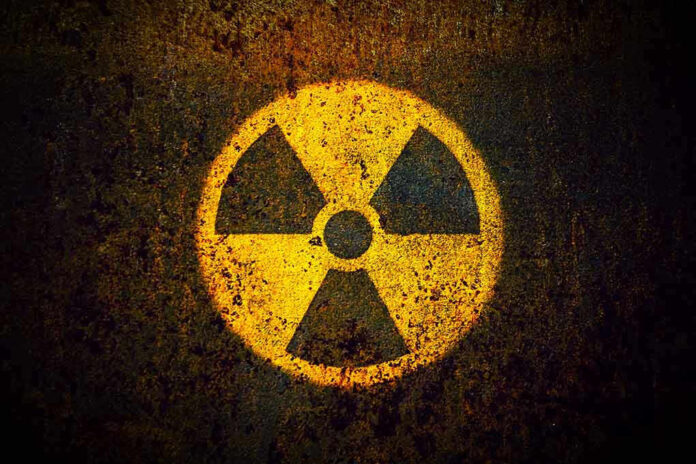Senate Republicans have shattered long-standing rules to break a Democrat-led blockade of Trump’s nominees, setting a precedent that could permanently change how Washington works—and who holds the real power in America.
Story Snapshot
- Senate Republicans invoked the “nuclear option” to bypass Democrat obstruction and rapidly confirm Trump’s civilian nominees.
- The new rule allows confirmation of unlimited groups of nominees at once, ending months of delays for over 140 appointments.
- This move is a stark escalation in partisan tactics and erodes traditional Senate debate and minority rights.
- Experts warn the rule change may further polarize Congress, weakening checks on government power and changing the nomination process for future presidents.
Senate Republicans Use “Nuclear Option” to Break Gridlock
On September 11, 2025, Senate Republicans voted 53-45 to change chamber rules, invoking the “nuclear option” to allow bloc voting on President Trump’s non-Cabinet and non-judicial nominees. This drastic step followed months of Democratic obstruction that stalled over 140 civilian appointments, with Democrats refusing even routine voice votes. Republicans argued this move was essential to clear the backlog and enable the Trump administration to fill critical executive branch positions, while Democrats decried it as an unprecedented erosion of Senate tradition.
The nuclear option used by Republicans allows for unlimited groups of nominees to be confirmed at once, bypassing the usual extended debate and procedural hurdles. This marks a significant departure from previous Senate practice, where bipartisan negotiation and individual consideration of nominees were the norm. The new rule is based on a Democratic proposal from 2023, but the bipartisan limitations initially suggested were abandoned after cross-party talks failed. Senate Majority Leader John Thune and Republican leadership emphasized that the change was necessary to end obstruction and restore government functionality.
Escalation of Partisan Tactics and Breakdown of Senate Norms
The decision to invoke the nuclear option is the latest development in an escalating arms race of procedural maneuvers between the two parties. Historically, the Senate prided itself on deliberation and minority protections, but both parties have used the nuclear option over the last decade to advance their agendas. Democrats first used it in 2013 to ease confirmation of executive nominees, Republicans followed in 2017 for Supreme Court picks, and again in 2019 to reduce debate time for civilian nominees. This latest move, however, is the most sweeping yet, fundamentally rewriting Senate procedure and potentially setting a lasting precedent.
Democratic leaders, including Chuck Schumer, warned that this erosion of debate could allow “more controversial nominees” in the future and leave the Senate unable to serve as a check on executive power. Republican leaders countered that Democrats forced their hand by blocking even non-controversial nominees, with Senator John Barrasso declaring, “That ends now.” The minority can still delay, but the majority now has a clear path to confirmation, reducing the influence of bipartisan negotiation and minority party leverage.
Implications for the Constitution, Conservative Values, and Governance
For conservatives, this rule change represents a hard-won victory against what many saw as Democrat overreach and obstruction. Rapid confirmation of Trump’s nominees will allow the administration to advance its policies on immigration, deregulation, and restoring constitutional order by filling key posts with like-minded officials. However, the breakdown of Senate norms raises concerns about long-term consequences. Experts warn that repeated use of the nuclear option weakens the Senate’s unique check on majority power, increasing the risk of “tyranny of the majority” and making it easier for future administrations—regardless of party—to bypass meaningful debate and scrutiny.
Senate Likely to Confirm Dozens of Trump Nominees After Going ‘Nuclear’ https://t.co/cHyRBcKwTR pic.twitter.com/nN0nUKgRY3
— ForthRight Strategy (@ForthRightStrat) September 12, 2025
The immediate impact is clear: the Trump administration gains the ability to swiftly staff its executive branch, and the Republican majority demonstrates legislative effectiveness. Yet, the loss of deliberative tradition may haunt the Senate for years to come, fueling further polarization and making it harder to restore balance or protect minority rights. While conservatives may cheer the end of obstruction for now, the precedent could come back to empower future majorities with different agendas, posing a complex challenge for those committed to limited government and constitutional principles.
Sources:
GOP triggers nuclear option in Senate to break Dem blockade of Trump nominees
Senate GOP invokes ‘nuclear option’ to confirm batches of Trump nominees











